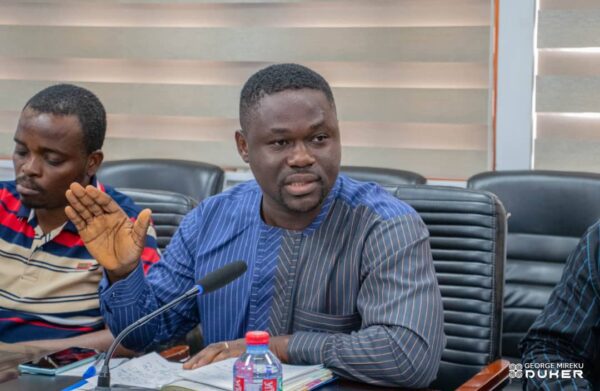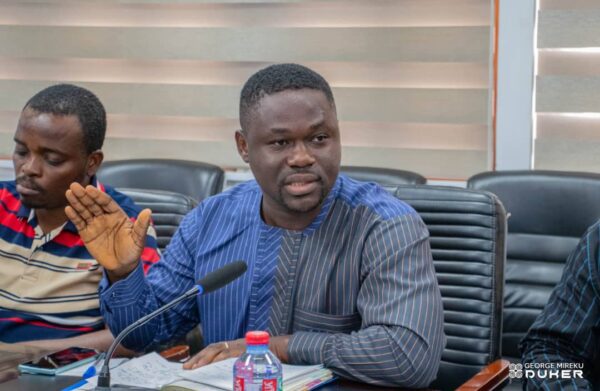
In a decision that has sent ripples through Ghana’s mining sector, the government has rejected Gold Fields Ghana’s application to extend its Damang Main Mining Lease — a concession due to expire on April 18, 2025. This lease, situated in the heart of Ghana’s gold-producing Western Region, supports over 1,500 workers, 75% of whom are from surrounding communities.
The silence surrounding this rejection, delivered without a clear public explanation, raises urgent questions about the transparency of Ghana’s mining governance and the direction of our national resource policy.
As a mining professional and advocate for responsible and equitable resource management, I feel compelled to speak out — not merely in defense of a company, but in defense of due process, community welfare, investor confidence, and the broader integrity of Ghana’s mineral economy.
The Stakes: Jobs, Investment, and Reputation
Gold Fields Ghana has been a significant contributor to Ghana’s mining output. The Damang site alone accounts for approximately 6% of the nation’s gold production by large-scale operators, according to 2022 and 2023 data from the Ghana Chamber of Mines. Beyond the production numbers, the lease supports more than a thousand contractors and hundreds of core employees — the majority of whom are locals, including a growing number of women.
The abrupt nature of the rejection has sparked confusion and concern not only within the host communities but across the entire investment landscape. What was the basis for this decision? Did the applicant fail to meet a regulatory requirement? Was there a breach of the 2016 Aboso Development Agreement? Or, more worryingly, is this part of a pattern of elite-driven lease reallocations under the guise of tendering?
The Call for Clarity
To restore trust and dispel growing suspicions, I call on the Ministry of Lands and Natural Resources and the Minerals Commission to publicly outline the specific provisions under the Minerals and Mining (Licensing) Regulations, 2012 (L.I. 2176) that warranted this rejection.
Some key questions demand answers:
- Was the lease extension application submitted within the 90-day timeline? Available information suggests Gold Fields filed in December 2024 — well ahead of the April 2025 expiry.
- Was any false or misleading information presented? If so, this must be made public.
- Did the company violate any lease conditions or fail to fulfill obligations under the Aboso Development Agreement?
If indeed there were compliance issues, these must be clearly communicated. The law applies equally — to small-scale miners and multinational companies alike. Ghana’s mining governance must be equitable, not selective.
Behind the Scenes: A Lease Prepared for Tender?
Regulation 200 of L.I. 2176 indicates that a rejected lease, if justified, may be treated as vacated and eligible for reallocation through a competitive tender. Regulation 258(c) supports this by stating mineral rights may be granted through tender where an area becomes available through revocation or expiration.
But here’s the concern: Is this lease being cleared to benefit pre-determined interests? Has the government already lined up potential bidders, perhaps under the pretext of “localization”? If so, will the field be opened fairly to all Ghanaian players — or will it favor a select few under the veil of nationalism?
While I support local participation and national value maximization, such outcomes must be pursued through transparent, lawful means. A skewed tender process or backdoor reallocation will only deepen public mistrust and dissuade future investment.
The Risks of Silence
Ghana has witnessed what happens when governments mishandle mining lease disputes. In Tanzania, international arbitrations have cost the state over US$ 200 million in judgments against similar lease terminations. Should Ghana tread the same path, we risk attracting lawsuits, paying judgment debts, and tarnishing our global investment reputation.
Section 27(3)(b)(II) of Ghana’s Minerals & Mining Act, 2006 (Act 703), allows companies to seek international arbitration in such disputes. Furthermore, the 2016 Aboso Development Agreement includes stabilization clauses protecting the lease from expropriation or nationalization. Any misstep here could be costly.
A Way Forward — With Integrity
If the rejection is to stand, then the reallocation process must reflect the highest standards of:
- Legal compliance
- Technical capacity
- Financial capability
- Community engagement
- Public accountability
Gold Fields must be given a fair opportunity to compete in any upcoming tender process. If localization is the government’s objective, then a fair platform must be offered to all capable Ghanaian operators — not just a pre-selected few. Ghana deserves better than closed-door dealings or rushed handovers to unqualified buyers, as was seen in the troubled Bogoso-Prestea transition.
Moreover, the government must urgently address the status and future of the over 1,500 workers whose jobs are now in limbo. Host communities must be consulted and supported through this transition.
Conclusion: Let Law, Not Lobbying, Lead
This matter goes far beyond a single lease or one company. It tests the strength of our regulatory institutions and the transparency of our national resource stewardship.
Let us not allow perceptions of cronyism or state capture to cloud what should be a process governed by law, merit, and fairness. The Minister of Lands and Natural Resources, the Ghana Chamber of Mines, and Parliament’s Lands and Natural Resources Committee must act swiftly to investigate, clarify, and reassure.
Silence will only fuel suspicion. But accountability — clear, firm, and fair — will restore trust and ensure that Ghana remains a respected destination for ethical, responsible mining investment.
Let us put Ghana first.
Ing. Wisdom Edem Gomashie
Mining Consultant
wissfarad@gmail.com
233 542 026 225

